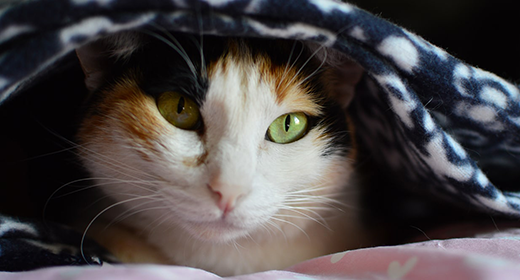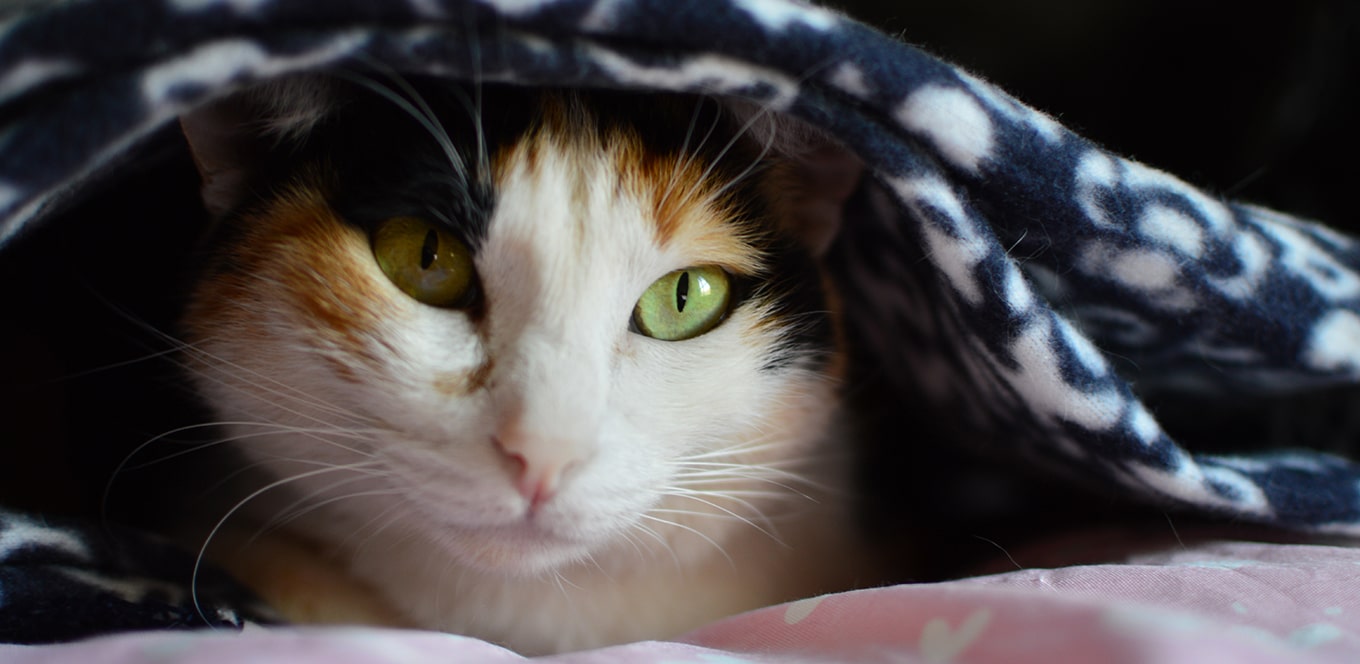

We all love corn. And why not? Corn on the cob is soft, sweet, and buttery. Just the sight of it can make our mouths water. However, did you know that even cats like corn. This might make you wonder whether corn is good for your feline friend. The answer is yes. In fact, corn is present in many cat foods. It is packed with protein, vitamins, minerals, and fiber. Continue reading to know the importance of corn for cats.
Since cats are omnivores, they need a high amount of protein to support their bodily functions. Hence, corn alone is not enough. One medium ear of corn contains 3.5 grams of protein. And cats need at least 2 grams of protein per pound of body weight.
If your cat is around 8 pounds, they require 16-gram protein at the least. Basically, your cat might have to eat at least 4 or 5 medium ears of corn. And doing that would increase their calorie intake. Hence, corn can only be a part of your cat’s day-to-day diet, not the whole meal. That being said, here are a few benefits of including corn in your cat’s diet:
Carbohydrates might not be the most vital nutrient for cats; however, it is highly digestible. This ensures that your fur baby feel energetic throughout the day. When your cat gets enough carbs, they do not have to use protein to produce energy. Proteins available in their body can focus on their primary role--muscle and tissue growth.
Corn is packed with fatty acids which maintain skin health and prevent inflammation. These fatty acids must be supplied through a balanced diet because your cat cannot produce them in their body.
Antioxidants are essential for cat health since they minimise damage to cells. Vitamin E optimises a cat’s T-cell activation, whereas beta-carotene increases antibody levels and improves vaccine recognition. Here's good news for you: corn is rich in both!
Corn is included in cat food formulas in various forms, such as ground corn, corn meal, corn grits, corn gluten meal, and corn bran. When reviewing the ingredients list on cat food packaging, you may see one or more of the following corn ingredients:
Corn ingredient | What it is |
Ground corn or corn meal | Finely ground and chopped whole corn |
Corn grits | The portion of ground corn containing little or none of the bran (fiber) or germ (the small protein portion at the end of the kernel) |
Corn bran | The outer coating of the corn kernel; largely fiber |
Corn gluten meal | A dried protein source that remains after the corn’s bran, a large portion of carbohydrates, and germs have been removed |
As a cat owner, you might want to serve your feline friend the best corn cat food. However, not all types of corn snacks are suitable for your pet. As a cat parent, you want to avoid feeding your fur baby with corn chips, popcorn, fried kernels, and corn husks. Stick to grilled or boiled sweet corn without any seasoning.
Corn is included in the formulas for all IAMS cat foods, including IAMS™ ProActive Health™ Healthy Adult and ProActive Health™ Healthy Kitten. It is more appropriate to associate the corn used in our products with “cornbread” rather than “corn on the cob.” The difference is similar to cooked corn versus raw corn. We use only the highest-quality corn in our products. The corn is finely ground, which breaks up the outside covering of each kernel, and then it is cooked for better digestibility.
Corn grits and cornmeal are used in our foods as high-quality sources of carbohydrates, which are an important source of energy. Corn generally also results in lower glycemic and insulin responses than rice. This can be especially beneficial for senior and overweight cats.



Cats are said to be one of the most intelligent creatures on this planet. They are the ideal embodiment of agility, mobility, speed, and grace. However, between ages 1 to 8, cats go through numerous transitions, equivalent to a teenager transitioning to middle age. As a caregiver, you need to ensure that you provide your cat with everything it needs to stay healthy – rich sources of nutrition, freshwater, etc. A cat's health needs to be monitored closely and any abnormalities should be reported to the vet. In fact, pet parents should care for their cat right from its kitten stage. It will help you keep any older cat health problems at bay in the long run. If you are unaware of how to care for cats between ages one to eight, read on. We made a list of everything that you need to know about caring for a cat!
As a first-time pet parent, it can be difficult to navigate your way through your cat’s needs and wants. Here are a few things you must ensure to keep your cat healthy:
Cats have a habit of licking their fur to groom themselves. This results in the production of hairballs in their system. Brushing or combing your cat daily can help reduce the number of hairballs in its digestive tract. This is a simple way to make grooming easy for your feline friend and help keep its system clean.
Cats are carnivores, they rely on meat as their primary source of nutrition. Pet parents must remember to include meat in their cat’s diet. Avoid feeding dry food in large quantities, as it can have a negative impact on your cat’s health. Cats derive most of their water intake from the food that they consume. Canned foods contain almost 78% water, whereas dry food contains only 5% to 10% water. So, too much dry food or only dry food can leave your cat dehydrated. And dehydration is one of the leading causes of older cat health problems. So, keep your cat nourished and hydrated at all times.
At IAMS™, our range of wet cat food not only contains high-moisture levels but also proteins, vitamins, and minerals. We make sure that your cat receives all the right nutrients to have a shiny coat and healthy immune system.
As far as litter boxes go, every cat should have its own. It is also advised for pet parents to keep an additional box for emergency situations. Furthermore, placing litter boxes at the right location is also important. People usually place litter boxes under their furniture, in the basement, or in dark corners. Cats may not always be comfortable with such settings. They prefer having an eye on their surroundings while doing the business. So, if you notice that your cat is not using the litter box, try changing its location.
It is frustrating when your cat does not use the litter box and dirties other areas of your home. The best way to resolve this issue is by finding out why it is doing so. First, take your cat to the vet to rule out any cat health problems like urinary tract infections. If illnesses are not the root cause, try changing the location as well as the litter box.
Another issue that pet parents face is their cat scratching different surfaces or ripping home decor fabric to shreds. Scratching is an instinctive behavior for cats. They do so to express different emotions. Many cat parents are oblivious to the fact that their pet needs a scratching post. Place it in a spot where your cat can easily notice it. You can also sprinkle some catnip on the post to attract your cat.
Neutering or spaying your cat is beneficial in multiple ways. Cats generally get aggressive as they go into heat. Female cats are very uncomfortable during this period and unneutered male cats tend to fight with each other. These fights can also result in the transmission of diseases through scratches and bites. Other than that, female cats can conceive at just four months of age, and raising a kindle of kittens can be stressful.
If you are a new cat parent, you must keep an eye out for common cat health issues. Going for routine health check-ups is highly recommended so that you can spot any early signs of kitten health problems.
Vomiting is one of the most common cat health issues and it can happen due to many reasons. Your cat can vomit because of hairballs, eating something inedible, diabetes, urinary tract infection, etc. If you notice your cat heaving abdominally or drooling, take it to the vet immediately.
Fleas bother almost all furry pets and are a common cat health problem. Fortunately, this is a problem that can be treated easily. Look out for signs such as:
Hair loss
Skin infections
Excessive scratching and itching
Frequent licking
Regardless of any signs, pet parents are recommended to get their cats checked for fleas regularly.
Female and male cats who are unfit, overweight, or consume a lot of dry food tend to get FLUTD. Co-existing with multiple cats, sudden lifestyle changes, and stress can also influence the occurrence of this disease. Here are a few symptoms that cat parents can look out for:
Dehydration
Loss of appetite
Frequent vomiting
Visible discomfort while urinating
Licking around the genitalia
Blood in their urine
Urinating outside the litter box
Your vet can recommend the right treatment according to the type of FLUTD your cat has.
Eye problems can occur because of many reasons such as glaucoma, cataracts, conjunctivitis, inflammation, different viruses, retinal diseases, and trauma. Symptoms that suggest eye problems include watery eyes, red eyes, gunk deposits in one or both eyes, cloudiness, white or red lining, and squinting. The best you can do is wipe off any dirt or gunk from your cat’s eyes and take it to the vet.
Eating spoiled foods, liver diseases, cancer, infection, The most common positive sign of great health in cats is grooming. In fact, they might even attempt to groom other pets or you. If you notice your cat licking you, that means it is trying to groom you, suggesting that they feel comfortable around you and trust you.and other health issues can cause diarrhea in cats. Common symptoms of diarrhea are watery or loose stools. This condition can last for days, weeks, or months, depending on the cause. If your cat is suffering from this condition, make sure you provide it with a lot of fresh water and take it to the vet.
You now know how to provide and care for your cat, and what problematic signs you need to look out for. Now let’s explore the signs of good cat health:
Playful pets are happy pets. A playful cat loves to run and jump around, or play with toys as well as their pet parents. This suggests that it likes its surroundings and has bonded with its caregivers.